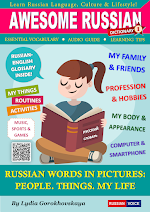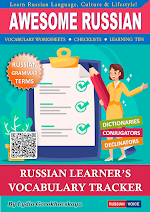In 1933, the fascist leader Adolf Hitler seized power in Germany and dreamed of conquering the whole world. He said that there is only one great nation - the Aryan, which he considered himself and his followers. People who didn’t belong to this exceptional nation had to become his slaves. Other people had to be killed. In 1939, Hitler attacked Poland, and soon almost the whole of Europe was conquered.
In the morning of June 22, 1941, Hitler attacked the Soviet Union. It was Sunday, people were resting, they planned their day off. Fascist planes bombed Kyiv, and people from other Soviet republics heard the terrible announcement on the radio: "The war has begun! Fascist Germany without the declaration of the war launched an offensive ... ".
All adult men put on military uniforms and went to the front. Those who stayed, went to the partisans, to fight the enemy in the rear. Even old people and children fought with fascists. For years, people could not live peacefully. Every day brought losses and grief. In a short time, the fascist invaders occupied Ukraine, Belarus, half of European Russia and reached the Caucasus. The Russian, Belarusian, Ukrainian and other peoples of the USSR paid a dear price for participating in this terrible war.
The war spared neither old people, nor children. Enemies bombed cities, mocked the local people, destroyed and plundered monuments of national culture. But our soldiers bravely fought against invaders. They were not afraid of hunger and cold. Of course, they were scared, but the dream of victory and peaceful life constantly supported them. The Soviet Army was assisted by allies the United States and Britain. They sent food, medicines and military equipment.
Meanwhile, in France, Poland, Italy and other occupied European countries, there was an active resistance movement. Its participants conducted an active anti-fascist propaganda, helped soldiers, hid Jews and fleeing war prisoners, and organized sabotage in plants. In the spring of 1945, the Soviet army approached Berlin. The battle for the city lasted until May 2. The storming of the Reichstag, where the leaders of fascist Germany gathered, was especially desperate. As a result, late in the night on May 8, 1945, representatives of the German High Command signed an act on the end of the war. The enemy gave up. The new day of May 9 was the Victory Day.
Now on this day we honor our veterans and give them flowers, usually red carnations. People sing military songs, watch movies about war, read poems and lay wreaths at the war memorial sites. Military parades take place on the main streets of the cities, and fireworks are arranged in the evening.
Over 60 countries participated in the Second World War! Over 60 million people did not return home. Half of the dead people were residents of the former Soviet Union. Almost every family lost a grandfather, father, brother or sister. Therefore, every year, we remember this event and honor the memory of those who died for our freedom. We must always remember that peace on earth is the most important value.
Как началась Вторая Мировая война
В 1933 (ты́сяча девятьсо́т три́дцать тре́тьем) году ли́дер немецких фаши́стов Адо́льф Гитлер захвати́л власть в Герма́нии и мечта́л завоева́ть весь мир. Он говори́л, что есть то́лько одна́ вели́кая на́ция - ари́йская, к кото́рой он причисля́л себя́ и свои́х после́дователей. Остальные народы должны́ бы́ли стать раба́ми вели́кой нации, а часть люде́й фаши́сты плани́ровали уничто́жить. В 1939 (ты́сяча девятьсо́т три́дцать девя́том) году Гитлер напа́л на По́льшу, и вско́ре почти́ вся Евро́па лежа́ла у его́ ног.
Как Гитлер напал на Советский союз
У́тром 22 (два́дцать второ́го) ию́ня 1941 (ты́сяча девятьсо́т со́рок пе́рвого) года Гитлер напа́л на Сове́тский сою́з. Э́то бы́ло воскресе́нье, лю́ди отдыха́ли и плани́ровали свой выходно́й. Вдруг на Ки́ев (столица Украи́ны) начали па́дать бо́мбы, а жи́тели други́х сове́тских респу́блик услы́шали по ра́дио: «Начала́сь война́! Фаши́стская Герма́ния без объявле́ния войны́ начала́ наступле́ние...».
До́лгие го́ды лю́ди не могли́ жить споко́йно. Ка́ждый день приноси́л больши́е поте́ри и го́ре. За коро́ткое вре́мя фаши́сты оккупи́ровали Украи́ну, Белару́сь, полови́ну европе́йской Росси́и и дошли́ до Кавка́за.
Дорогу́ю це́ну заплати́л ру́сский, белору́сский, украи́нский и други́е наро́ды СССР за уча́стие в э́той ужа́сной войне́. Война́ не жале́ла ни старико́в, ни дете́й. Враги́ бомби́ли города́, издева́лись над ме́стным населе́нием, разруша́ли и гра́били па́мятники национа́льной культу́ры.
Но на́ши солда́ты сме́ло боро́лись с захва́тчиками. Они́ не боя́лись ни го́лода, ни хо́лода. Коне́чно, им бы́ло стра́шно, но мечта́ о побе́де и ми́рной жи́зни постоя́нно подде́рживала их.
Как союзники помогали советским солдатам
Сове́тской а́рмии помога́ли сою́зники - США и Великобрита́ния. Они́ посыла́ли пита́ние, медикаме́нты и вое́нную те́хнику. Тем вре́менем, во Фра́нции, По́льше, Ита́лии и други́х оккупированных стра́нах Евро́пы шло акти́вное Движе́ние Сопротивле́ния. Его́ уча́стники вели́ акти́вную антифашисткую пропага́нду, помога́ли солда́там, пря́тали евре́ев и бежавших военнопленных, устра́ивали сабота́жи и диве́рсии на предприятиях.
Как советские солдаты взяли Берлин
Весно́й 1945 (ты́сяча девятьсо́т со́рок пя́того) года сове́тская а́рмия подошла́ к Берли́ну. Би́тва за го́род продолжа́лась до 2 ма́я. Осо́бенно отча́янным был штурм рейхста́га, где собра́лись руководи́тели фаши́сткой Герма́нии.
В результа́те поздней ночью 8 (восьмо́го) ма́я 1945 (ты́сяча девятьсо́т со́рок пя́того) года представи́тели неме́цкого верхо́вного кома́ндования подписа́ли акт о капитуля́ции. Враг сда́лся. Новый день 9 (девя́тое) ма́я стал Днём Побе́ды.
Как мы празднуем День Победы
Тепе́рь в э́тот день мы поздравля́ем ветера́нов, поём вое́нные пе́сни, смотрим фильмы о войне, чита́ем стихи́ и несём цветы́ к па́мятникам поги́бших героев. На главных улицах городов проходят военные парады, а вечером устраиваются феерверки.
Втора́я Мирова́я война́ охвати́ла бо́лее 60 стран ми́ра! Бо́лее 60 миллио́нов челове́к не верну́лись домо́й. Полови́на поги́бших — жи́тели бы́вшего Сове́тского Сою́за. Почти́ ка́ждая семья́ потеря́ла де́душку, отца́, брата и́ли сестру́. Поэ́тому ка́ждый год мы вспомина́ем э́то собы́тие и уважа́ем па́мять поги́бших за на́шу свобо́ду. Мы должны́ всегда́ по́мнить, что мир на земле́ — са́мая гла́вная це́нность.

Напишите в комментариях, что вы знаете о событиях Второй Мировой войны? What do you know about the II World War events? Write in comments :)

































